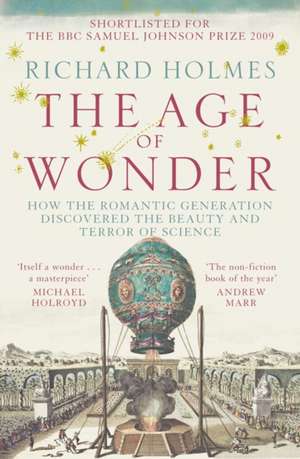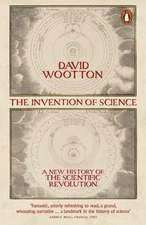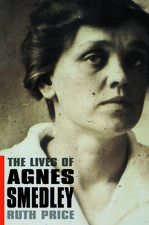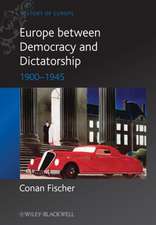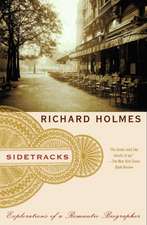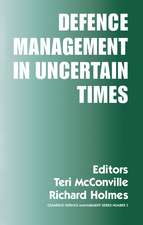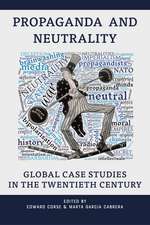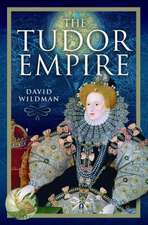The Age of Wonder: How the Romantic Generation Discovered the Beauty and Terror of Science
Autor Richard Holmesen Limba Engleză Paperback – 3 sep 2009
Shortlisted for the Samuel Johnson Prize and winner of the Royal Society Prize for Science Books, Richard Holmes's dazzling portrait of the age of great scientific discovery is a groundbreaking achievement. The book opens with Joseph Banks, botanist on Captain Cook's first Endeavour voyage, who stepped onto a Tahitian beach in 1769 fully expecting to have located Paradise. Back in Britain, the same Romantic revolution that had inspired Banks was spurring other great thinkers on to their own voyages of artistic and scientific discovery - astronomical, chemical, poetical, philosophical - that together made up the `age of wonder'.
In this breathtaking group biography, Richard Holmes tells the stories of the period's celebrated innovators and their great scientific discoveries: from telescopic sight to the miner's lamp, and from the first balloon flight to African exploration.
| Toate formatele și edițiile | Preț | Express |
|---|---|---|
| Paperback (2) | 96.57 lei 3-5 săpt. | +18.33 lei 6-10 zile |
| HarperCollins Publishers – 3 sep 2009 | 96.57 lei 3-5 săpt. | +18.33 lei 6-10 zile |
| Vintage Books USA – 28 feb 2010 | 154.14 lei 3-5 săpt. |
Preț: 96.57 lei
Nou
18.49€ • 18.97$ • 15.57£
Carte disponibilă
Livrare economică 05-19 februarie
Livrare express 21-25 ianuarie pentru 28.32 lei
Specificații
ISBN-10: 0007149530
Pagini: 380
Ilustrații: Illustrations (chiefly col.), map, ports. (chiefly col.)
Dimensiuni: 131 x 199 x 43 mm
Greutate: 0.45 kg
Ediția:ePub edition
Editura: HarperCollins Publishers
Locul publicării:United Kingdom
Notă biografică
Extras
Joseph Banks in Paradise
1
On 13 April 1769, young Joseph Banks, official botanist to HM Bark Endeavour, first clapped eyes on the island of Tahiti, 17 degrees South, 149 degrees West. He had been told that this was the location of Paradise: a wonderful idea, although he did not quite believe it.
Banks was twenty-six years old, tall and well-built, with an appealing bramble of dark curls. By temperament he was cheerful, confident and adventurous: a true child of the Enlightenment. Yet he had thoughtful eyes and, at moments, a certain brooding intensity: a premonition of a quite different sensibility, the dreaming inwardness of Romanticism. He did not like to give way to it. So he kept good company with his shipmates, and had carefully maintained his physical fitness throughout the first eight months of the voyage. He regarded himself – ‘thank god’ – as in as good mental and physical trim as a man could be. When occasionally depressed, he did vigorous jumping ‘rope exercises’ in his cabin, once nearly breaking his leg while skipping.
He was capable of working patiently for hours on end in the extremely cramped conditions on board. The quarterdeck cabin, which he shared with his friend Dr Daniel Solander, was approximately eight feet by ten. He had adopted a strict daily routine of botanical drawing, electrical experiments, animal dissections, deck-walking, bird-shooting (when available) and journal-writing. He constantly fished specimens from the sea, shot or netted wild birds, and observed meteorological phenomena, such as the beautiful ‘lunar rainbows’. When his gums had begun bleeding ominously with the onset of scurvy, he had calmly treated himself with a specially pre-prepared syrup (‘Dr Hume’s mixture’) of concentrated lemon juice, taking precisely six ounces a day. Within a week he was cured.
Just occasionally young Banks’s scientific enthusiasm turned to explosive impatience. When rudely prevented from carrying out any botanical field trips by the Spanish Consul at Rio de Janeiro, and confined for three weeks to the sweltering ship in the harbour at Rio, he wrote colourfully to a friend at the Royal Society: ‘You have heard of Tantalus in hell, you have heard of the French man laying swaddled in linen between two of his Mistresses both naked using every possible means to excite desire. But you have never heard of a tantalized wretch who has born his situation with less patience than I have done mine. I have cursed, swore, raved, stamped.’ Banks did however unofficially slip over the side at night to collect wild seeds and plants, a hoard which included the exotic purple bougainvillea.
Once among the Polynesian isles, Banks spent hours at the topgallant masthead, his large form crouched awkwardly in the crow’s nest, looking for landfall beneath the heavy tropical cloudbase. At night the crew would hear distant surf roaring through the dark. Now at last he gazed out at the fabled blue lagoon, the black volcanic sand, and the intriguing palm trees (Linnaeus’s Arecaceae). Above the beach the precipitous hills, dense with dark-green foliage and gleaming with white streams, rose sharply to 7,000 feet. On the naval chart Banks noted that the place was marked, prosaically enough, ‘Port Royal Bay, King George the Third’s Island’. ‘As soon as the anchors were well down the boats were hoisted out and we all went ashore where we were met by some hundreds of the inhabitants whose faces at least gave evident signs that we were not unwelcome guests, tho they at first hardly dare approach us. After a little time they became very familiar. The first who aproachd us came creeping almost on his hands and knees and gave us a green bough the token of peace.’
Taking the hint, all the British shore party pulled down green boughs from the surrounding palm trees and carried them along the beach, waving them like ceremonial parasols. Eventually they were shown an idyllic spot close by a stream, where it was indicated that they could set up camp. The green boughs were thrown down in a great pile on the sand, ‘and thus peace was concluded’. Here the British settlement known as Fort Venus was to be established: ‘We then walkd into the woods followd by the whole train to whom we gave beads and small presents. In this manner we walked for 4 or 5 miles under groves of Cocoa nut and Bread fruit trees loaded with a profusion of fruit and giving the most gratefull shade I have ever experienced. Under these were the habitations of the people most of them without walls. In short the scene we saw was the truest picture of an Arcadia of which we were going to be Kings that the imagination can form.’
As the men walked back, feeling dangerously like royalty, the Tahitian girls draped them with flowers, offered ‘all kind of civilities’ and gestured invitingly towards the coconut mats spread in the shade. Banks felt, reluctantly, that since islanders’ houses were ‘entirely without walls’ it was not quite the moment to ‘put their politeness to every test’. He would not have failed to have done so ‘had circumstances been more favourable’.
2
Tahiti lies roughly east–west just below the 17th parallel, one of the largest of what are now the Society Islands, roughly halfway between Peru and Australia. It is shaped not unlike a figure of eight, some 120 miles (‘40 leagues’) in circumference. Most of its foreshores are easily accessible, a series of broad, curving bays with black volcanic sands or pinkish-white coral beaches, fringed by coconut palms and breadfruit trees. But a few hundred yards inland, the ground rises sharply into an entirely different topography. The steep, densely wooded volcanic hills lead upwards to a remote and hostile landscape of deep gullies, sheer cliffs and perilous ledges.
Contrary to legend, the Endeavour, commanded by Lieutenant James Cook, was not the first European ship to make landfall in Tahiti. Spanish expeditions, under Quiroz or Torres, had probably touched there in the late sixteenth century, and claimed it for Spain. A previous English expedition, under Captain Wallis of the Dolphin, had definitely landed there in 1767, when it was described as ‘romantic’, and claimed for England. A French expedition under Louis-Antoine de Bougainville had anchored there the following year, and claimed it for France.
The French had racily christened Tahiti ‘La Nouvelle Cythère’, the New Island of Love. Banks’s opposite number, the French botanist Philibert Commerson (who named the bougainvillea after his captain), had published a sensational letter in the Mercure de France describing Tahiti as a sexual ‘Utopia’. It proved that Jean-Jacques Rousseau was right about the existence of the Noble Savage. But then, the French had only spent nine days on the island.
Cook was more sceptical, and had every member of his crew (including the officers) examined for venereal infections four weeks before arriving, by their surgeon Jonathan Monkhouse. He issued a series of Landing Instructions, which stated that the first rule of conduct ashore was civilised behaviour: ‘To Endeavour by every fair means to cultivate a Friendship with the Natives and to treat them with all Imaginable Humanity.’ It was no coincidence that he enshrined the ship’s own name in this instruction.
Joseph Banks had his own views on Paradise. He gave a whimsical account of his first night ashore in his Endeavour Journal. He dined deliciously on dressed fish and breadfruit, next to a Tahitian queen, who ‘did me the honour with very little invitation to squat down on the mats close by me’. However, the queen was ‘ugly enough in conscience’. Banks then noticed a very pretty girl, ‘with a fire in her eyes’ and white hibiscus in her hair, lingering in the ‘common crowd’ at the door. He encouraged her to come and sit on his other side, studiously ignored the queen for the rest of the evening, and ‘loaded’ the Polynesian beauty with bead necklaces and every compliment he could manage. ‘How this would have ended is hard to say,’ he observed later. In fact the amorous party broke up abruptly when it was discovered that his friend Solander had had a snuffbox picked from his pocket, and a fellow officer had lost ‘a pair of opera glasses’. It is not explained why he had brought opera glasses ashore in the first place.
This thieving proved to be completely customary in Tahiti, and led to many painful misunderstandings on both sides. The first occurred the following day, when a Tahitian quite openly made off with a marine’s musket, and was immediately shot dead by a punctilious guard. Banks quickly grasped that some quite different notion of property must be involved, and noted grimly: ‘We retird to the ship not well pleasd with the days expedition, guilty no doubt in some measure of the death of a man who the most severe laws of equity would not have condemnd to so severe a punishment. No canoes about the ship this morning, indeed we could not expect any as it is probable that the news of our behaviour yesterday was now known every where, a circumstance which will doubtless not increase the confidence of our friends the Indians.’ Nonetheless, to Banks’s relief and evident surprise, good relations were restored within twenty-four hours.
The Endeavour expedition remained for three months on Tahiti. Its main object was to observe a Transit of Venus across the face of the sun. (Cook stated that this was the reason their settlement was named Fort Venus, though his junior officers gave a different explanation.) This was due on the morning of 3 June 1769, and there would be no other transit for the next hundred years (not until 1874). It was a unique chance to establish the solar parallax, and hence the distance of the sun from the earth. This calculation depended on observing the exact timing at which the silhouette of Venus first entered, and then exited from, the sun’s disc.
Banks was not part of the astronomical team, but when the expedition’s quadrant was stolen one night shortly before the transit was due, he reacted with characteristic energy and courage. He knew that without this large and exquisitely calibrated brass instrument, used to measure precise astronomical angles, the entire observation would be rendered valueless. Not waiting for Cook or his marine guards, Banks roused the expedition’s official astronomer, William Green, and set off immediately on foot in pursuit of the thief. In the dizzy heat, Banks followed the trail far up into the hills, accompanied only by a reluctant Green, one unarmed midshipman and a Tahitian interpreter. They penetrated seven miles inland through the Tahitian jungle, further than any European had been before: ‘The weather was excessive hot, the Thermometer before we left the tents up at 91 made our journey very tiresome. Sometimes we walk’d sometimes we ran when we imagind (which we sometimes did) that the chase was just before us till we arrivd at the top of a hill about 4 miles from the tents. From this place [the interpreter] Tubourai shew’d us a point about 3 miles off and made us understand that we were not to expect the instrument till we got there. We now considerd our situation. No arms among us but a pair of pocket pistols which I always carried; going at least 7 miles from our fort where the Indians might not be quite so submissive as at home; going also to take from them a prize for which they had ventured their lives.’
Banks decided to send back the midshipman with a brief message to Cook that armed reinforcements would be welcome. Meanwhile he and Green would press on alone, ‘telling him at the same time that it was impossible we could return till dark night’.
Before dusk, Banks ran the thief to ground in an unknown and potentially hostile village. A crowd quickly gathered round them, ‘rudely’ jostling them. Following a Tahitian custom he had already learned, Banks quickly drew out a ring on the grass, and surrounded by ‘some hundreds’ of faces, sat quietly down in the centre. Here, instead of threatening or blustering, he began to explain and negotiate. For some time nothing transpired. Then, piece by piece, starting with its heavy wooden deal case, the quadrant was solemnly returned. ‘Mr Green began to overlook the Instrument to see if any part or parts were wanting… The stand was not there but that we were informd had been left behind by the thief and we should have it on our return… Nothing else was wanting but what could easily be repaired, so we pack’d all up in grass as well as we could and proceeded homewards.’
By the time armed marines came up, sweating and jittery, about two miles down the track, Banks had completed the transaction and made several new friends. Everyone returned peacefully to Fort Venus on the shore. For this exploit, all conducted with the greatest calm and good humour, Banks earned the profound gratitude of Cook, who noted that ‘Mr Banks is always very alert upon all occasions wherein the Natives are concerned.’ Banks concluded mildly in his journal: ‘All were, you may imagine, not a little pleased at the event of our excursion.’
Banks and Cook were a seemingly ill-matched pair. They were divided by background, education, class and manners. Yet they formed a curiously effective team. Cook’s cool and formal manners towards the Tahitians were balanced by Banks’s natural openness and enthusiasm, which easily won friends. With their help he would gather a mass of plant and animal specimens, and make what was in effect an early anthropological study of Tahitian customs. His journal entries cover everything from clothes (or lack of them) and cookery to dancing, tattooing, sexual practices, fishing methods, wood-carving, and religious beliefs. His accounts of a dog being roasted, or a young woman having her buttocks tattooed, are frank and unforgettable. He attended Tahitian ceremonial events, slept in their huts, ate their food, recorded their customs and learned their language. He was pioneering a new kind of science. As he wrote in his journal: ‘I found them to be a people so free from deceit that I trusted myself among them almost as freely as I could do in my own countrey, sleeping continually in their houses in the woods with not so much as a single companion.’
Recenzii
"In this big two-hearted river of a book, the twin energies of scientific curiosity and poetic invention pulsate on every page."
—The New York Times Book Review
"The Age of Wonder is the long-awaited fermentation of the author's knowledge of the Romantic poets and his lifelong fascination with science."
—The Economist
"Holmes, the biographer of Coleridge and Percy Bysshe Shelley, has a firm grip on science in "The Age of Wonder" and a fluency in drawing the connections to literature and religion." --Chemical and Engineering News
"Gives us . . . a new model for scientific exploration and poetic expression in the Romantic period. Informative and invigorating, generous and beguiling, it is, indeed, wonderful."
—The Guardian
"The most flat-out fascinating book so far this year…. Holmes' account of experimental science at the end of 1700s is beyond riveting."–Lev Grossman, Time Magazine
"Holmes is certainly the man to undertake this intellectual salvage operation…Ambitious…Eloquent." –Wall Street Journal
"Holmes pursues his many-chambered nautilus of a tale with energy and great rigor, unearthing many lives and assembling remnant shards of biography, history, science, and literary criticism." —Christian Science Monitor
“Rich in human foibles and thrills…” –Cleveland Plain Dealer
“Richard Holmes—who is almost unfairly gifted both as a writer of living, luminous prose and as a tireless researcher—braids Herschel's story together with a dozen others to create the most joyful, exciting book of the year.” –Time Magazine, “The Top 10 Everything of 2009”
“If, like me, you didn't study much science after high school, this absorbing narrative will make you appreciate the gravity of your mistake. At one level, it is simply an enchanting group biography of the great British discoverers Joseph Banks, Humphrey Davy, and William Herschel, and their relationships with the likes of Keats, Coleridge, Byron and the Shelleys. At another, Holmes's book is a persuasive plea to heal the pointless breach between the "two cultures" of science and the humanities. Reading it made we want to do college over, this time as a history of science major.” –Slate, Best Books of 2009
"What's superlative about "The Age of Wonder" is that Holmes, author of vivid biographies of Shelley and Coleridge, takes the air out of the terms "subjectivity" and "objectivity" and reveals the ways in which the artists were as enveloped in science as the men and women in the labs around them. In a harmony of scientific and artistic sensibilities, he shows, the Romantics tapped the marvels of nature and sounded the infinite benefits of science. It's a song, if we can hear it, that can transform us today." —Salon
"For Holmes to bring those people back to life is a great achievement…this is the finest history of science book I've come across." —Physics Today
"The opening words of Richard Holmes's "The Age of Wonder" couldn't be calmer, but the charge embedded within them ignited an era that merits his soaring title. It was a singular time, and this is a singular book." —CNNmoney.com
"What Holmes has given us with this account of the Romantic scientists is, curiously enough, a thrilling new way to interpret the poets of the era. To bring new light to such a widely read group–and from the angle least expected, that of rigorous scientific study–is Holmes's considerable gift." —Poetry Foundation
"It was a singular time, and this is a singular book." —Fortune Magazine
"[An] amazingly ambitious, buoyant new fusion of history, art, science, philosophy, and biography . . . . Holmes's excitement at fusing long-familiar events and personages into something startlingly new is not unlike the exuberance of the age that animates his groundbreaking book."
—Janet Maslin, The New York Times
"The Romantics gave us many of our notions of how science is done, which makes the subject of this book—even leaving aside the brilliance with which much of it is told—significant beyond its importance as intellectual history." –American Scholar
"I've been fascinated by a new book, The Age of Wonder, by Richard Holmes. He talks about how scientists and poets were very much aligned in the Age of Enlightenment, around 1800. Coleridge, Byron and Shelley were all interested in scientific progress. What was discovered, whether in labs or in the cliffs of Tahiti, excited and inspired everyone. I was gripped by that, because it comes at a time when Harvard and other universities are starting to question why different university departments should feel so separate when the purpose of a university is supposedly to bring all the sciences and humanities together." –Yo-Yo Ma
Praise from the United Kingdom for The Age of Wonder
"Holmes suffuses his book with the joy, hope, and wonder of the revolutionary era. Reading it is like a holiday in a sunny landscape, full of fascinating bypaths that lead to unexpected vistas."
—The Sunday Times
"Gives us . . . a new model for scientific exploration and poetic expression in the Romantic period. Informative and invigoration, generous and beguiling, it is, indeed, wonderful."
—The Guardian
"Romanticism and Science are justly reunited in Holmes's new book . . . A revelation . . . Thrilling."
—The Independent
"Exhilarating . . . Instructive and delightful . . . Finely observed . . . Generous and hugely enjoyable."
—The Daily Telegraph
"Fascinating . . . This beautifully crafted book deserves all the praise it will undoubtedly attract. Well-researched and vividly written, The Age of Wonder will fascinate scientists and poets alike."
—The Literary Review
From the Hardcover edition.
